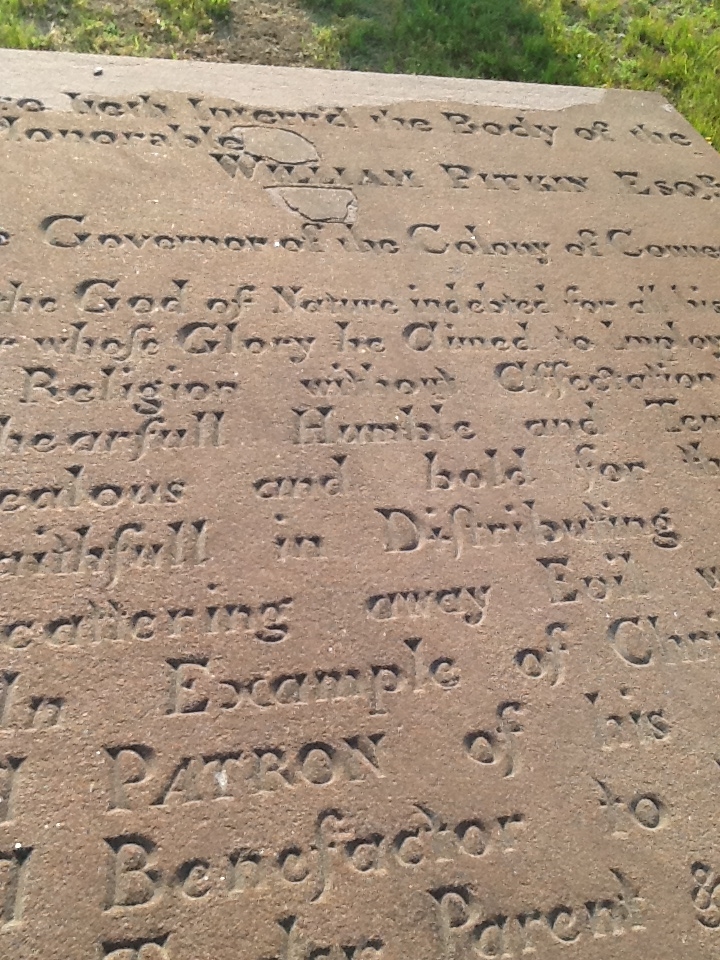“Having made Seizure of a Sloop named the Sally”
On 19 July, a Newport mob had ruined the Customs patrol ship Liberty after threatening its captain and crew. The next day, with no armed vessel to stop them, sailors “rescued” a sloop named Sally that the Liberty had seized. The captain of another ship detained at the same time, the brig Thames, successfully demanded that his vessel be released for lack of evidence.
On 25 July, a smaller mob in New London beat up one Customs officer and intimidated others. And on 31 July, the hull of the Liberty caught fire and burned to the waterline, rendering it beyond repair.
It took a while for the Commissioners of Customs in Boston to respond, but in August they made a move. On 14 August this advertisement appeared in the Newport Mercury:
WHEREAS William Reid Commander of the Sloop Liberty, employed in the Service of his Majesty’s Customs, having made Seizure of a Sloop named the Sally, Edward Finker Master, belonging to New-London, loaded with a Cargo of prohibited Goods, carried the same into the Harbour of Newport, Rhode Island, where a great Number of People, riotously and tumultuously assembled together, in the Evening of the 19th of July last, and having, by Force and Arms, attacked and secured the said Captain Reid and his Men, and taken Possession of both Vessels; they set Fire to, and sank the Liberty, and carried off the Sloop Sally:This advertisement and Capt. Reid’s report to the head office referred to the captain of the Sally as Edward Finker. However, other sources make clear his name was Edward Tinker. A handwriting error, or had he given the authorities a false name?
For the apprehending, and bringing to condign Punishment, the Persons concerned in this daring and atrocious Outrage, The Commissioners of his Majesty’s Customs do hereby promise a Reward of One Hundred Pounds Sterling, to any Person or Persons who shall inform against any of the Offender or Offenders (except Nathaniel Shaw, Joseph Packwood and —— Angel;) to be paid on his or their Conviction.
By Order of the Commissioners,
RICHARD REEVE, Sec’ry.
As for the other men named in the ad, Nathaniel Shaw, Jr., was the owner of the Thames and the Sally. Joseph Packwood was captain of the Thames. James Angel or Angell worked for Shaw as a captain after 1774; at this time he might have been a mate. The parenthetical phrase with their names is placed ambiguously, but I think the commissioners meant those three were ineligible for the reward since they had carried out the crime.
As good bureaucrats, the commissioners also set out to close the books on the Liberty project. On 4 September, this ad ran in the Boston Evening-Post:
All Persons who have any Demands for Stores, Carpenter’s Work, Provisions, &c. upon Account of the Sloop Liberty, lately employed in the Service of his Majesty’s Customs, are hereby desired to send in their Accounts forthwith to Messrs. Green & Russell, Printers at Boston. Sept. 2. 1769,Green and Russell were the printers of the Boston Post-Boy, which got the bulk of the Customs office printing business—at least until John Mein came to town. It’s striking that they were collecting bills for work on the Liberty rather than the Customs staff, but probably more artisans felt safe walking into their print shop than into the Customs house on King Street.
According to Joseph R. Frese’s article, in all the Customs service paid £980 to fit out the Liberty as a patrol vessel, plus £371 for “maintenance.” To be sure, most of that money went to shipwright Robert Hallowell, brother of Customs Commissioner Benjamin Hallowell.
Then the Customs service caught a break—and a ship. The 11 September Boston Evening-Post reported:
We hear from Norwich, that last Wednesday se’nnight a small Sloop was seized there by Duncan Stewart, Esq; Collector at the Port of New London, upon information that it was the same Sloop lately seized by Capt. Reid, in the Sloop Liberty, and carried into Newport, and thence rescued.The Customs service had the Sally in custody again.
TOMORROW: Nathaniel Shaw wanted his sloop back.





